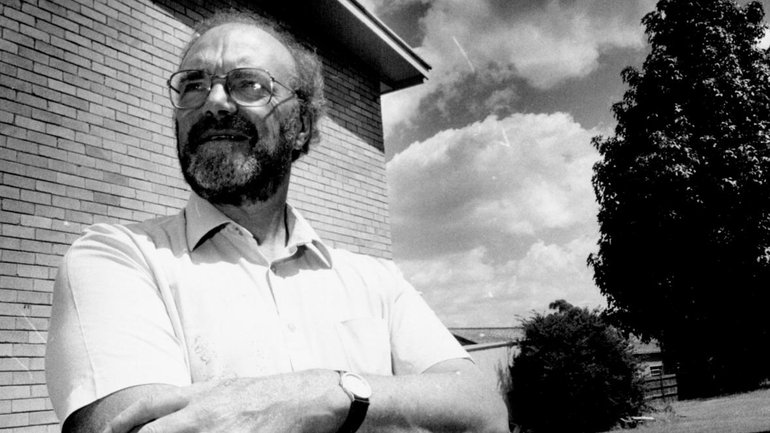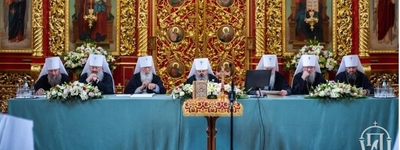Michael Bourdeaux, Defender of Religious Freedom

Born 19 March 1934 in Praze, Cornwall, Michael Bourdeaux was the son of a baker and a schoolteacher. Talented in languages, he studied Russian at Oxford, and in 1959 spent a year at Moscow University in the first UK-USSR student exchange program organized by the British Council. As it happened, Bourdeaux’s stay in Moscow coincided with the beginning of a wave of particularly intense Soviet persecution of religion that lasted until Premier Nikita S. Khrushchev fell from power in 1964.
After his studies in the USSR, Michael Bourdeaux studied theology at Oxford and was ordained an Anglican priest in 1961. On a visit to Moscow in 1964, he spoke with two women at the site of a demolished church. This led to his meeting a group of Russian Orthodox believers who asked him to “be our voice” and tell the world about the persecution of religion in the Soviet Union. (“Be Our Voice” became the title of Jenny Robertson’s 1984 book about Bourdeaux’s work.) In 1969, with the help of Peter Reddaway and Leonard Schapiro of the London School of Economics, the clergyman founded the Center for the Study of Religion and Communism. In 1974, the center moved to a former schoolhouse in the village of Keston in Kent, 13 miles southeast of central London. A registered charity relying entirely on donations, what came to be known as Keston College was governed by a Council with Sir John Lawrence as president and the journalist Christopher Cviic as chairman.
Michael Bourdeaux assembled a team that eventually counted over twenty researchers speaking as many languages. They covered the USSR and East Europe except for Albania and Yugoslavia, on which they received advice from outside experts. A China specialist later joined the team. Keston’s Research Department published the scholarly journal “Religion in Communist Lands,” later titled “Religion, State and Society.” In 1977, the College published its first carefully documented list of religious prisoners of conscience in the USSR. Its Information Department published the Keston News Service bulletin and a newsletter entitled “The Right to Believe.”
In directing Keston College, Michael Bourdeaux sought to balance objective scholarly research on the state of religion in communist countries with principled advocacy for religious freedom.
Many in the West criticized him for allegedly undermining “quiet diplomacy” and “rocking the boat” by speaking out on Soviet persecution. Others, however, understood that constant pressure from a credible and independent source could contribute to genuine diplomatic solutions and, more importantly, to the cause of fundamental human rights.
In 1984, Michael Bourdeaux was awarded the Templeton Foundation Prize for progress in religion. In his acceptance speech at London’s Guildhall, he foresaw the collapse of the communist system, stating, “I see an empire in decay.” The following year, the Politburo appointed Mikhail S. Gorbachev General Secretary of the Communist Party of the Soviet Union, beginning an era of reforms that culminated in the dissolution of the USSR less than seven years later. Yet as late as 1987, Keston’s “Religious Prisoners in the USSR” listed 296 documented prisoners of conscience belonging to 14 denominations, including 217 Christians. Among the latter were 17 Ukrainian Greek-Catholics.
Michael Bourdeaux had turned his attention to Ukraine several years earlier, after meeting Canadian political scientist Bohdan Bociurkiw, Ukrainian Catholic Metropolitan Maxim Hermaniuk, C.Ss.R of Winnipeg, Dr. Frank Sysyn, and other members of the Ukrainian communities in England, Canada, and the United States. In 1983, a special issue of “Religion in Communist Lands” was devoted to Ukraine. Under an agreement with the Ukrainian Studies Fund at Harvard University, and as part of its project to observe the millennium of the Baptism of Rus’, funds were allotted to maintain a researcher on Ukraine at Keston College. This writer was privileged to assume this position on 5 November 1984.
Within months, clandestine copies of the “Chronicle of the Catholic Church in Ukraine,” circulated in Ukraine since January 1984, turned up at Keston. The persecution of Iosyp Terelya and the movement for legalization of the Ukrainian Greek-Catholic Church (UGCC) became recurrent topics in Keston publications and public addresses. Information on the persecution of Ukrainian Orthodox believers as well as of Baptists, Pentecostals, Seventh-day Adventists, Jehovah’s Witnesses, and others was collected and disseminated. Keston College published a selection of English translations of writings by Iosyp Terelya, “For My Name’s Sake,” in 1986. Among the visitors to Keston in those years was a graduate student from Harvard named Borys Gudziak – now the Ukrainian Catholic Metropolitan Archbishop of Philadelphia.
At the end of 1987, the post of researcher on Ukraine was assumed by Marko Bojcun, and subsequently by the Rev. Serge Keleher. In 1988, as the Russian Orthodox Church celebrated the Millennium of Christianity in Kyivan Rus’, the Communist Party changed its religious policy. The UGCC emerged from the underground, and the Ukrainian Autocephalous Orthodox Church reappeared. Meanwhile, communist regimes fell throughout East Europe. After a meeting between Mikhail Gorbachev and Pope John Paul II in December 1989, the UGCC was permitted to register its parishes with the authorities and was fully legalized. In 1991 Ukraine achieved independence, and the Soviet Union collapsed.
As subsequent events have starkly illustrated, this was not the end of religious persecution in the world, or even in the lands that had lived under Soviet Communism. Public concern about religious liberty, however, somewhat abated until turbulence in the Middle East shook the opening years of the twenty-first century. Meanwhile, Keston College had been renamed the Keston Institute and moved to Oxford in 1994. In 2007 Baylor University of Waco, Texas established the Keston Center for Religion, Politics, and Society, which houses the Keston library and archive and works with Keston UK.
Michael Bourdeaux combined a keen sense of fair play with a passion for truth. He was not blinded by the romantic russophilia that one often encounters in the West. He fully appreciated the cause of the suppressed Ukrainian churches and defended it with conviction. At Keston College, he created an ecumenical and truly collegial atmosphere where a Ukrainian Catholic could count on the cheerful support and cooperation of Polish Roman Catholics and Russian Orthodox as well as Protestants, Evangelicals, and others.
While he resisted any politicization of his mission, Bourdeaux was well aware of the Ukrainian people’s tragic history. In his review of Robert Conquest’s 1986 “Harvest of Sorrow,” a study of the 1932-33 famine in Ukraine, he did not shrink from characterizing this as the worst genocide of the 20th century (“Church Times,” 21 November 1986).
This writer last saw Michael Bourdeaux and his wife Lorna on 6 October 2016. An overflow audience of students and scholars at the Ukrainian Catholic University’s Institute of Church History in Lviv greeted the founder of Keston College with warm appreciation for his decades of tireless work for the freedom of religious belief for all men and women, not least Ukrainians.
May God grant him eternal repose in His kingdom.










